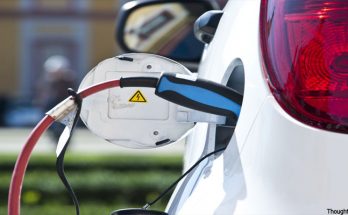 Because the extremely conception of the automobile, engineers and designers have been searching for was to make them a lot more effective and save on fuel consumption. Electric Vehicle Supply Gear Financing: Home owners might apply to their local government for funding to support finance EVSE installations on their property or enter into a financing agreement with the nearby government for the exact same goal. Electric Automobile Supply Equipment Rebate: The Los Angeles Division of Water and Power (LADWP) Charge Up L.A.!
Because the extremely conception of the automobile, engineers and designers have been searching for was to make them a lot more effective and save on fuel consumption. Electric Vehicle Supply Gear Financing: Home owners might apply to their local government for funding to support finance EVSE installations on their property or enter into a financing agreement with the nearby government for the exact same goal. Electric Automobile Supply Equipment Rebate: The Los Angeles Division of Water and Power (LADWP) Charge Up L.A.!
A tax credit is also offered for 50 % of the equipment charges for the acquire and installation of option fuel infrastructure. Electric Vehicle Provide Gear Rebates: The Illinois Division of Commerce and Economic Chance supplies rebates to offset the expense of Level two EVSE. Residence charging stations: As soon as a charging station is installed in your household, charging your EV or PHEV is as easy as plugging it into an electric outlet.
Plug-in Electric Automobile and Electric Vehicle Provide Gear Grants: The Colorado Energy Workplace (CEO) and Regional Air High quality Council (RAQC) supply grants to help PEV adoption in fleets. Some solutions to enable preserve grid reliability contain employing sensible grid technologies that charge cars through off-peak hours, permitting a utility to limit charging when demand is higher and rising electric rates through peak hours and lowering them at evening.
Sales Tax Exclusion for Producers: California’s Alternative Power and Sophisticated Transportation Financing Authority (CAEATFA) gives a sales tax exclusion for advanced makers and suppliers of alternative supply and sophisticated transportation items, components or systems. Option Fuel & Advanced Vehicle Technology Tax Credit: An revenue tax credit of up to $6,000 is readily available for a motor car that makes use of or is converted to use an alternative fuel, is a hybrid electric vehicle or has its energy source replaced with a single that utilizes an option fuel.
Alternative Fuel Automobile Tax Credit: An earnings tax credit of 50 percent—up to $19,000 per vehicle—is accessible for the incremental or conversion cost for qualified cars. Powering cars by employing domestic power sources helps states diversify the transportation fuel mix and increase the use of local power sources. Side-by-Side Comparison: To understand additional about every single automobile type, view the Division of Energy’s side-by-side comparison of their fuel economy and fuel cost savings.


